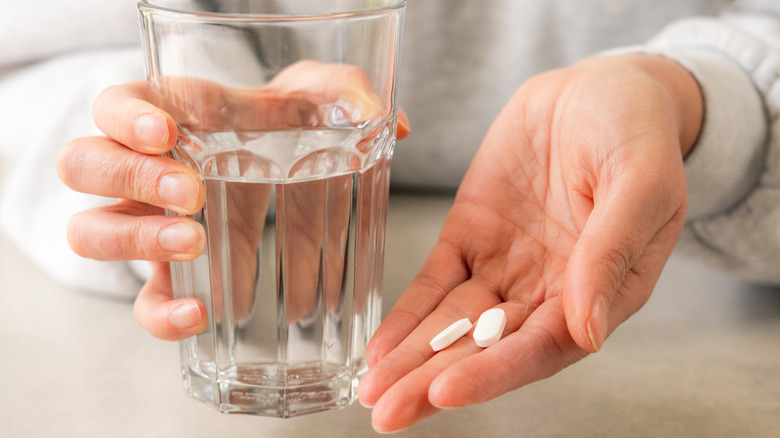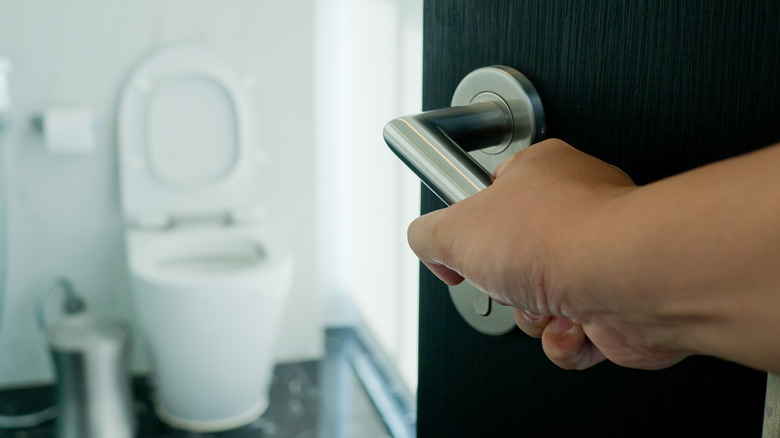Taking Ibuprofen Has An Unexpected Effect On Your Pee
Nobody likes being woken up in the middle of the night by their bladder calling. However, the consumption of certain food items and beverages before bedtime may either boost the likelihood of nighttime urination or help minimize it. A cup of hot tea, for instance, which acts as a diuretic and increases urine output, can have us running for the bathroom throughout the night. Eating ample amounts of fruits and vegetables, on the other hand, may help reduce the frequency of nighttime urination — a condition known as nocturia, according to 2020 research published in F1000Research.
The same is true for various medications. While certain types of antidepressants and blood pressure medications tend to prompt more trips to the toilet (via Drugs.com), there's one over-the-counter NSAID medication that has been shown to potentially combat nighttime urination. Even better, you're likely already using it to treat mild aches, pains, or low-grade fever. Behold, ibuprofen.
Ibuprofen may alleviate urinary symptoms associated with an enlarged prostate
In a 2006 study published in the American Journal of Epidemiology, Mayo Clinic experts looked at the effects of NSAID medications (like aspirin and ibuprofen) on the urinary health of more than 2,400 white older men. They found that NSAID usage was linked with a lower risk of developing an enlarged prostate, or benign prostatic hyperplasia, a condition known to cause difficulty initiating urination, a weak pee stream, frequent nighttime urination, and more.
"The typical scenario with benign prostatic hyperplasia is that men start getting up three to five times a night to urinate, and their wives ultimately force them to go see a urologist," study investigator Dr. Michael Lieber stated via Science Daily. Ultimately, the research findings revealed that for men who took NSAIDs, the risk of developing benign prostatic hyperplasia was cut in half compared to those who took a placebo drug. The intervention group was also 35% less likely to experience more extreme urinary symptoms.
Ibuprofen may help combat frequent nighttime urination
The evidence in support of ibuprofen's ability to promote urinary health has continued to grow over the years. Researchers from a 2019 clinical trial published in Neurourology and Urodynamics examined a new immediate/sustained-release medication known as Paxerol. Made up of 325 milligrams (mg) of acetaminophen and 150 mg of ibuprofen, the study team set out to determine if the drug successfully alleviated patient symptoms of nocturia.
The researchers found that, in comparison to a placebo, the use of Paxerol effectively reduced severe nocturia symptoms in patients with an overactive bladder who got up to pee at least 2.5 times each night. Presently, pharmaceutical company Wellesley Pharmaceuticals states that the development of Nocturol™ (Paxerol) is currently in the works to reduce symptoms of nocturia for a period of eight hours. However, experts caution that more research may be needed to better understand the potential long-term effects of the drug. Additionally, patients should consult with their physician before taking ibuprofen or any medications in an attempt to self-treat urinary issues.



